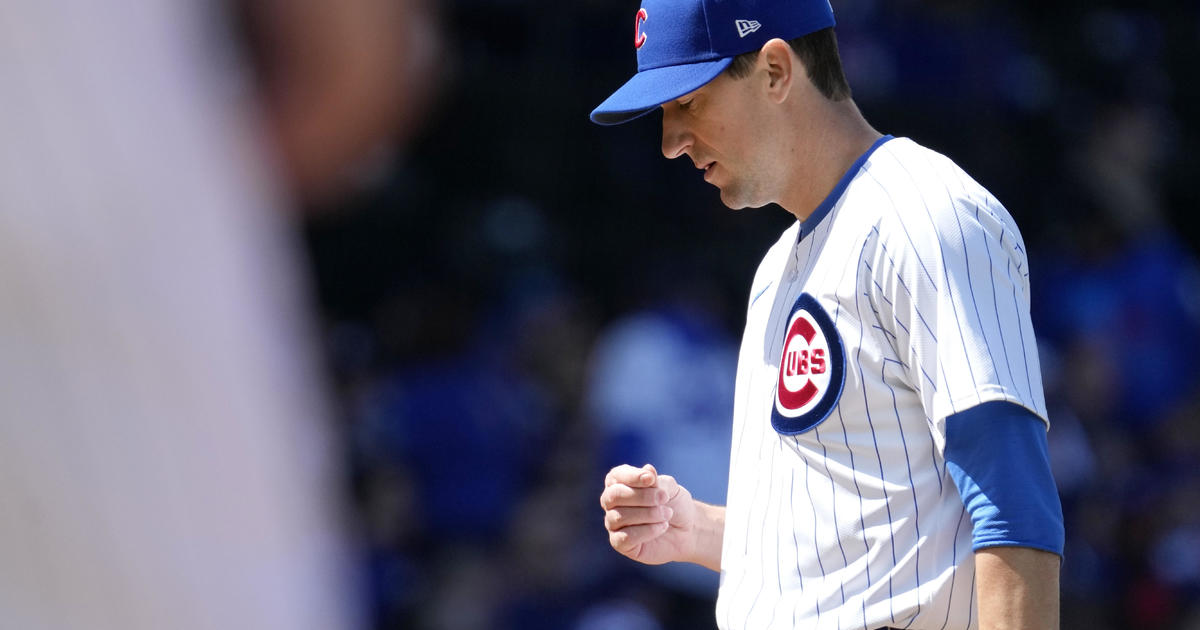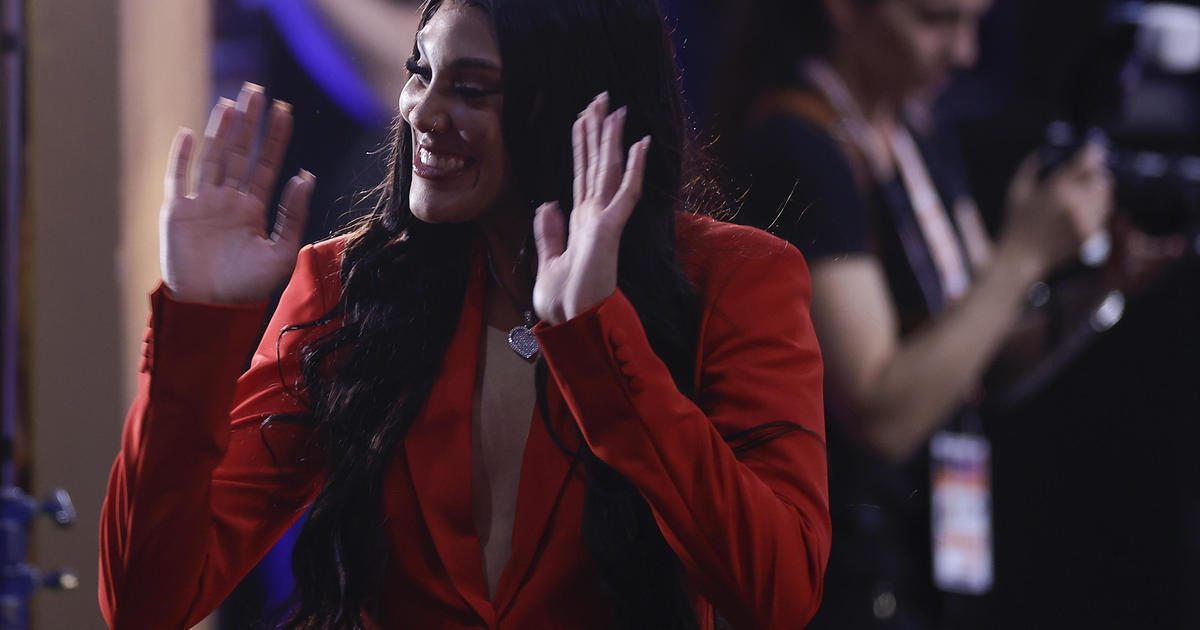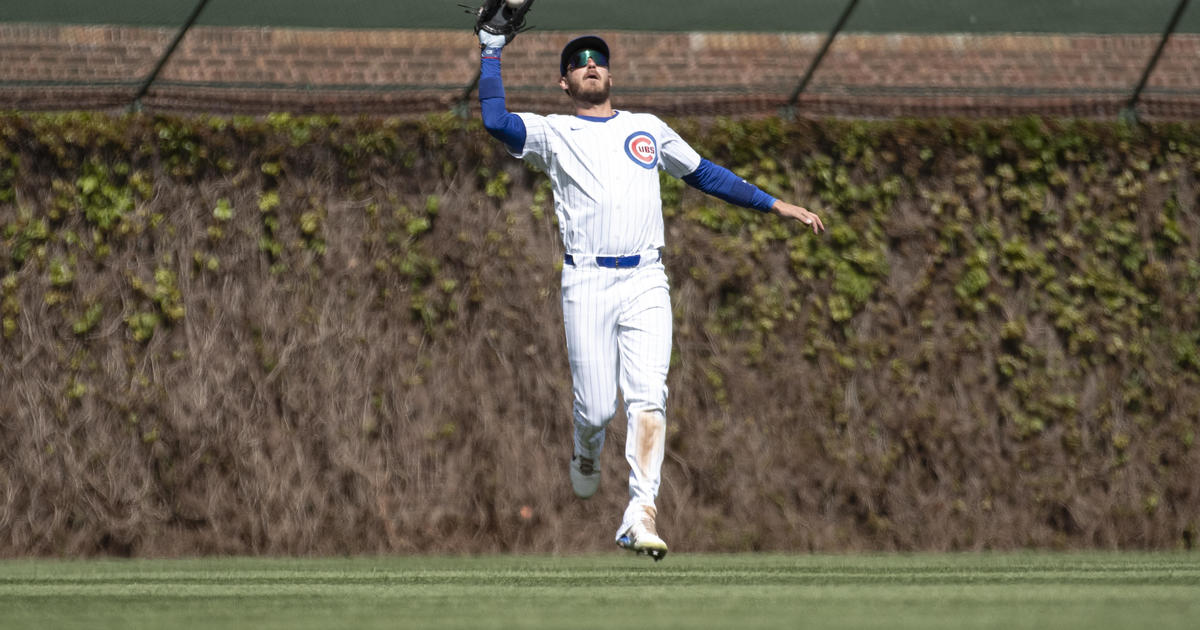Baffoe: MLB Isn't Fooling Anyone With Its Juiced Balls Denial
By Tim Baffoe--
(CBS) To paraphrase DJ Khaled, "Baseball, congratulations, you played yourself."
From the late 1990s past the turn of the century, we had grown accustomed to a surge in home runs — their sheer numbers from individuals and the MLB collective as well as the elongation of the landing spots. "Chick dig the long ball" was a wildly successful ad campaign. Former commissioner Bud Selig bathed in the uptick in fan attention and money after a disastrous strike in 1995.
Then the bubble burst when definitive proof showed what we'd been lying to ourselves about most of that time: Players like Mark McGwire, Sammy Sosa and Barry Bonds had used performance-enhancing drugs to bulk up and send the ball farther more often.
Selig and Co. were quick to crucify those caught players who had been tacitly endorsed by the league that knew something was unnatural the whole time but now had to play puritan. Since then, MLB has done much to de-program us from ever remembering such a period in baseball ever existed. If kids today know McGwire or Bonds at all, it's as drastically thinner recent hitting coaches. Sosa has been all but disowned by the Cubs organization.
The banishment of the game's greatest orcs was baseball publicly pretending that if it isn't only fueled by blood, sweat and Babe Ruth's hot dogs, then we've lost everything good about America. Meanwhile, it never discussed how some form of bending or breaking rules for a competitive advantage has gone on with players, teams and even the whole league itself for as long as the MLB has existed. Substances on the ball, stealing signs, sharpening spikes, popping handfuls of amphetamines — that contraband had been cool with the games' guards so long as they didn't see what they didn't want to see. Steroids carry a different stigma.
But baseball never stopped wanting more long balls, because fans have always gravitated toward them more so than 2-1 pitcher duels with sacrifice bunts. If it could no longer quietly nod at players' body chemistries changing, it had to find another way.
The league has a strict PED policy, with a player getting an 80-game suspension for a first offense, 162 games for a second offense and a lifetime ban for a third. So relying on individual sluggers to pick up the slack for a precipitous drop in dingers that was occurring in the first half of this current decade wasn't going to be feasible. And yet almost overnight, home runs were back with gusto beginning in late 2015. As of late this June, players were on pace this season to hit well more than 6,000 homers and crush the record by almost 500 for total homers set in the year 2000.
Turns out, baseball found a way.
"You feel the ball, it feels a little bit different," Blue Jays right-hander Marco Estrada told BP Toronto recently. "To me, it feels a little smaller ... If the seams are wound tighter, obviously they are going to go a little farther. It's probably the case. But everybody is pitching with it, so (I) deal with it … I don't know how true it really is, to be honest, but they do feel a little bit different."
Last month, FiveThirtyEight used an actual physicist to examine the homer spike and concluded the balls themselves are in part contributing to a new home run era. Ben Lindbergh at The Ringer has done enough research on the smaller size of the ball and its lowered seams to show you'd have to be pretty willfully ignorant not to accept a juiced ball theory today.
Commissioner Rob Manfred did just that.
"I understand that people like conspiracy theories," Manfred told Yahoo Sports. "I wish that I were a) smart enough or b) effective enough to, in the middle of the season, figure out a way to effectuate this sort of change. I would be way better at my job if I were smart enough to pull that off. I understand there is a change that is difficult to explain. The other side of that coin is that to hypothesize that we somehow had a plan that we implemented in the middle of the season that effectuated that sort of change strains credulity.
"We have tested the baseball really thoroughly and consistently over a period of time. I know others have tested it and have said certain things. Our test results from the labs we believe are the most skilled in this suggest there is nothing about the baseball that can account for the increase in home runs."
So the game that would prefer you think all achievements are based on hard work and eating Wheaties says its preferred science is more reliable than findings not done on its dime. We shouldn't be so much bothered that a pro sports league is probably lying to us as tickled by how silly baseball again has to be about baseball. It's pathetically funny how much baseball twists itself in knots to appear to be the same sepia kids game of yore.
For as much as people wax on the game's nostalgia and sanctity of stats and the honor involved between the lines of being honest and humble and getting an injurious projectile directed at your body otherwise, we like explosiveness -- be it a home run, be it an arc-bending strikeout (Manfred told Yahoo that "our fan research suggests that people like home runs and they actually like lots of strikeouts"), be it a collision or a depth-defying double play turned. What every home ballpark ovation for every accused cheat or accused domestic abuser shows is that fans on the whole don't care how that explosiveness is achieved, so long as it's helping their favorite team win games.
If the balls are juiced, most fans won't really care. It was never a scandal that the Colorado Rockies were open about using a humidor for Coors Field baseballs to intentionally drop the park's propensity for homers. How many fans were driven away from the game when the New York Mets moved the Citi Field fences in more than once? And what happened in Colorado and New York were both driven by science, by the way? So is the tightening of current baseballs, apparently.
But baseball is a religion, and too often faith and science have a quietly intimate relationship behind closed doors while the former incorrectly believes the worshippers don't want it to be seen with the latter in public. Yet baseball, like the church it considers itself to be, is — to paraphrase Polonius — oft to blame in this, its own nefariousness, that could otherwise be a nothing-burger if it just owned it. And it has too much proved that with devotion's visage and pious action it does sugar over its own devils.
In other words, baseball — pretending something isn't happening that we all know is happening for the sake of illusion of home run morality — again played itself.
Tim Baffoe is a columnist for CBSChicago.com. Follow Tim on Twitter @TimBaffoe. The views expressed on this page are those of the author, not CBS Local Chicago or our affiliated television and radio stations.



